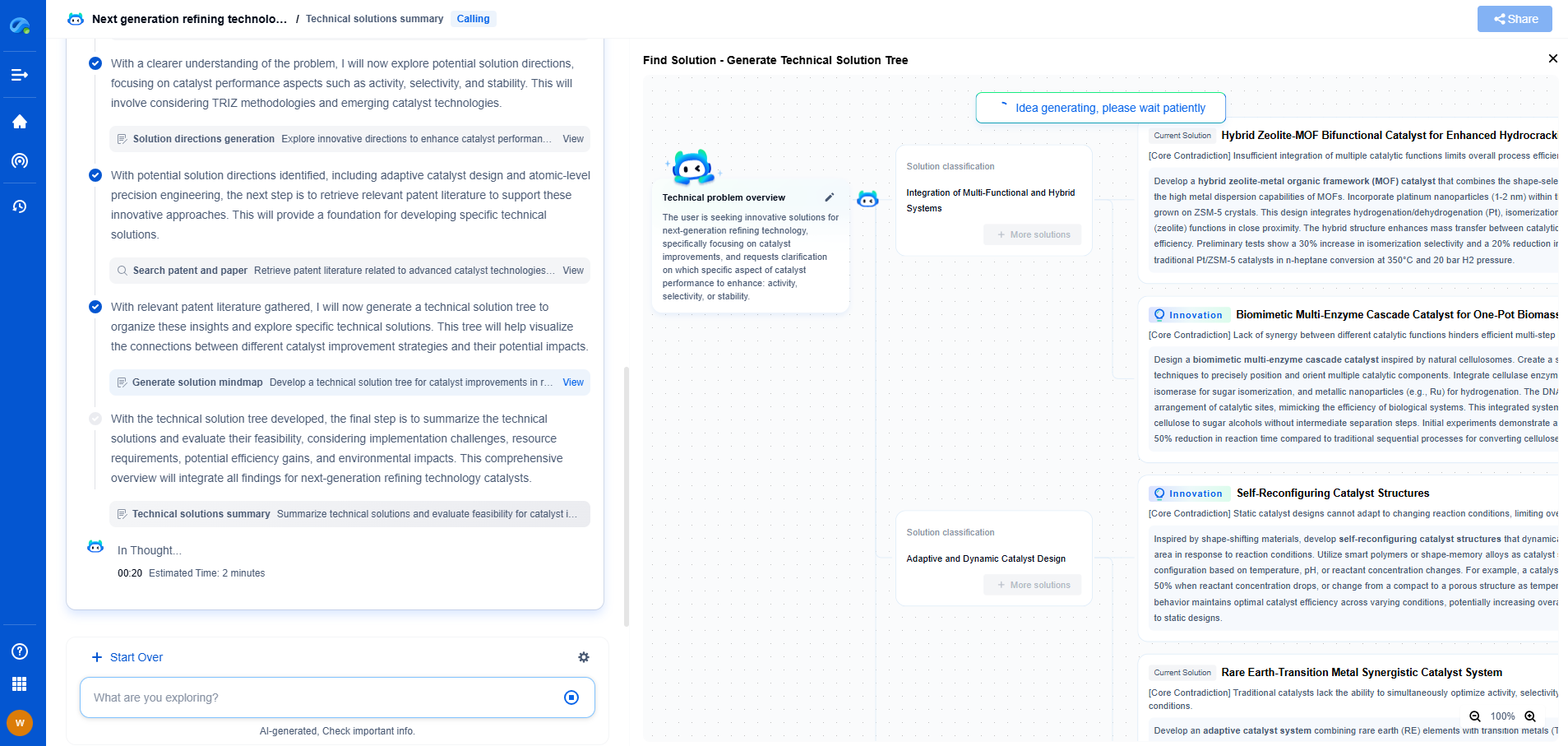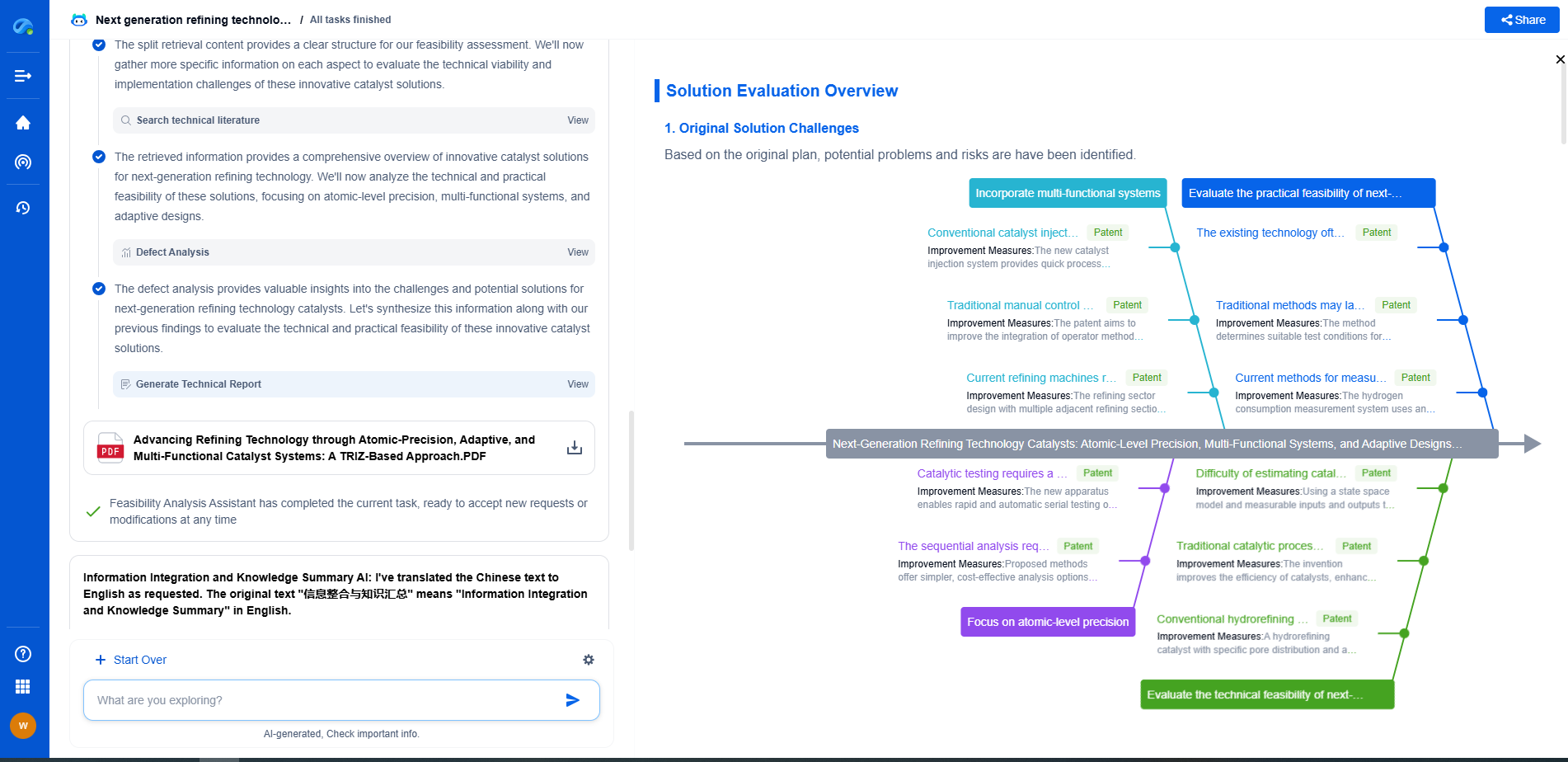How China's EV Battery Recycling Laws Are Shaping Global Standards
JUN 20, 2025 |
As the global demand for electric vehicles (EVs) continues to surge, the question of how to manage the lifecycle of EV batteries has become increasingly critical. China, being the world's largest EV market, is at the forefront of developing and implementing battery recycling laws that are beginning to influence global standards. This article explores how China's approach to EV battery recycling is setting benchmarks for the rest of the world.
The Urgency of Battery Recycling
With millions of EVs on the road, the need to recycle batteries is more urgent than ever. Lithium-ion batteries, which power most EVs, contain valuable materials like cobalt, nickel, and lithium that can be recycled and reused. However, if not disposed of properly, these batteries pose significant environmental risks. China's swift action in addressing these challenges has positioned it as a leader in the battery recycling sector.
China's Regulatory Framework
China's government has enacted a series of regulations aimed at promoting the safe disposal and recycling of EV batteries. The "Interim Measures for the Management of Recycling and Utilization of New Energy Vehicle Power Batteries," issued by the Ministry of Industry and Information Technology (MIIT), sets out the guidelines for recycling processes. These regulations emphasize the producer's responsibility, requiring automakers to establish a full lifecycle management system for the batteries.
The Role of Technology and Innovation
China's battery recycling laws are not just about regulation; they are also about fostering technological innovation. The Chinese government has been investing heavily in research and development to improve recycling technologies. Advanced techniques such as hydrometallurgical and pyrometallurgical processes are being optimized to increase the efficiency of material recovery from used batteries. This focus on technology is crucial for making the recycling process economically viable and environmentally friendly.
Collaboration with the Private Sector
Another key aspect of China's approach is the collaboration between the government and private companies. Leading Chinese firms, such as CATL and BYD, are investing in battery recycling facilities and developing new processes to enhance recycling rates. These companies are setting an example by integrating recycling into their business models, ensuring that sustainability becomes a core part of the EV supply chain.
Global Implications and Influences
China's comprehensive approach to EV battery recycling is beginning to have ripple effects worldwide. Other countries are taking note of China's policies and are starting to implement similar regulations. The European Union and the United States, for example, are considering stricter recycling mandates influenced by China's pioneering efforts. This global shift towards standardized recycling practices is essential for creating a sustainable future for electric mobility.
Challenges and Future Prospects
Despite China's progress, challenges remain in scaling up recycling infrastructure and ensuring compliance across a vast and rapidly growing industry. Additionally, the fluctuating market prices of raw materials can impact the economic feasibility of recycling operations. Nevertheless, China's commitment to innovation and regulation provides a promising outlook for overcoming these obstacles.
Conclusion: A Blueprint for Global Standards
China's EV battery recycling laws are shaping the global conversation around sustainability in the automotive industry. As the world transitions to a greener future, the standards set by China will likely serve as a blueprint for other nations aiming to establish their own recycling frameworks. By prioritizing regulation, technology, and collaboration, China is leading the charge in ensuring that the shift to electric vehicles is both economically and environmentally sustainable. As a result, the global community stands to benefit from the lessons learned and the standards set by China's proactive approach to EV battery recycling.
Accelerate Breakthroughs in Fuel Cell and Battery Innovation—with the Power of AI
From solid-state battery breakthroughs to high-efficiency hydrogen fuel cells, keeping pace with fast-evolving chemistries, global patent landscapes, and emerging application pathways is an ever-growing challenge for R&D and IP professionals.
Patsnap Eureka, our intelligent AI assistant built for R&D professionals in high-tech sectors, empowers you with real-time expert-level analysis, technology roadmap exploration, and strategic mapping of core patents—all within a seamless, user-friendly interface.
Whether you're optimizing cathode formulations, evaluating electrolyte stability, or navigating the crowded patent space around battery pack design, Eureka empowers you to move faster and with greater confidence.
Start your journey with Patsnap Eureka today—streamline your research, enhance decision-making, and power the future of energy with AI-driven clarity.
- R&D
- Intellectual Property
- Life Sciences
- Materials
- Tech Scout
- Unparalleled Data Quality
- Higher Quality Content
- 60% Fewer Hallucinations
Browse by: Latest US Patents, China's latest patents, Technical Efficacy Thesaurus, Application Domain, Technology Topic, Popular Technical Reports.
© 2025 PatSnap. All rights reserved.Legal|Privacy policy|Modern Slavery Act Transparency Statement|Sitemap|About US| Contact US: help@patsnap.com

